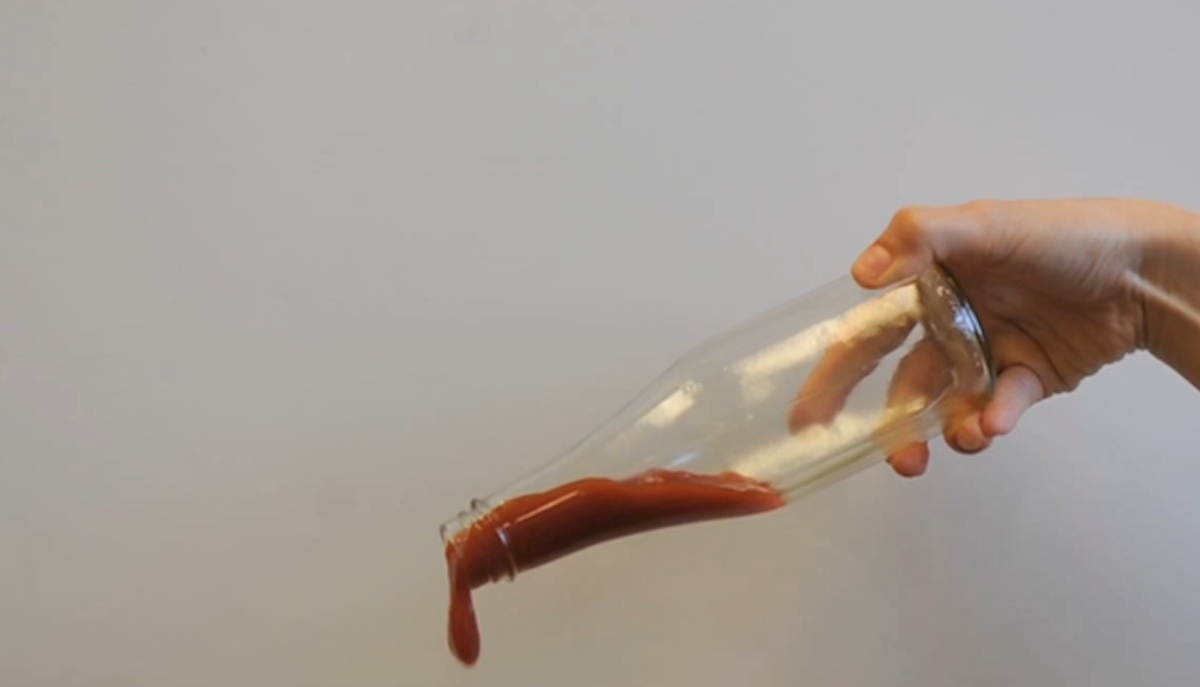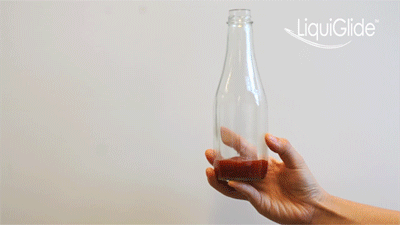What The Tech?: LiquiGlide Will Likely Set Industry Standards

Screenshot Via YouTube.com
By 2015, restaurant patrons won’t be fidgeting with condiment containers, struggling to squeeze out the last drops of ketchup or mayonnaise from the bottle, thanks to the invention of a former MIT researcher.
Dave Smith, the founder and CEO of LiquiGlide, a coating that allows liquid substances and foods to slide seamlessly from the insides of containers and onto a person’s desired surface, believes his novel concept—which would solve an often frustrating conundrum—will become standard-issue for most household products and goods within the next few years.
“There could be [LiquiGlide] applications across all industries,” he said confidently, without revealing the grand scheme for the Kendall Square-based company.
On the company’s website, it reads, “what the wheel was to transportation, LiquiGlide will be to liquids—it will change how liquids move.”
Currently, LiquiGlide is in talks with some heavy-hitters within the food and condiment sector, and that’s where their focus remains. “We realized packaging was a great place to start,” Smith said of the team’s research, which started back in 2009 when he was part of a group working out of MIT’s Lab for Nanoengineered Surfaces, Interfaces, and Coatings.
Smith said the slippery material, which coats the inside of most material surfaces, be it plastics or glass, is made from FDA-approved products and works in a similar way to putting oil on a frying pan to allow substances to glide around with ease. LiquiGlide’s technology, however, is actually “impregnated” into materials, rather than merely resting on the surface.
“It’s permanently trapped against surfaces, and the way we do that is through capillary forces,” he said. “It gets trapped within a highly textured surface, and is held in place through those forces. Like if you were to dip a tissue into water, the water wicks up into the tissue and stays there.”
In a series of videos released by the company, which has headquarters not far from MIT, foods like mayonnaise, ketchup, and toothpaste slide out of bottles without sticking to the sides. Once empty, the containers look as though they were licked clean:

When a container is set down with a liquid still inside of it, the food settles quickly back to the bottom, without crawling slowly down the sides. While LiquiGlide can be used for a range of food packaging, every product needs its own unique blend of the invention. “We have to choose the right solid and liquid materials in respect to the product or material gliding on top. The coating for mayonnaise doesn’t work for ketchup,” said Smith.
LiquiGlide president Carsten Boers said not only does the invention relieve the frustration of banging around a bottle, trying to salvage the last drops, it also cuts back on waste. Consumers are prone to giving up on things like tubes of toothpaste or the remains of condiments, because the substances often stick to the sides of bottles and won’t budge.
“We expect using LiquiGlide will become fast and common place. We have no doubt, based on information from consumer studies, that people will expect this as a standard in a very short while. So much product is wasted in some of these categories,” said Boers.
The company now has five coatings completely ready for market, and they’re planning how to implement them immediately. Smith and a team of roughly 20 engineers are constantly working on ways to improve the patented coating from their Cambridge headquarters, too.
“There are a few nuggets in the energy sector that could happen in the next few years,” he said. “As a company [condiments are] a starting point for us, but we go beyond these videos online. Some markets we will work with are in the medical field—what works for ketchup also works for blood, to give you a visual for it. There could be tubes, stents, anything like that. It could literally be a life-saving thing, so we were keen to get that going as well.”


